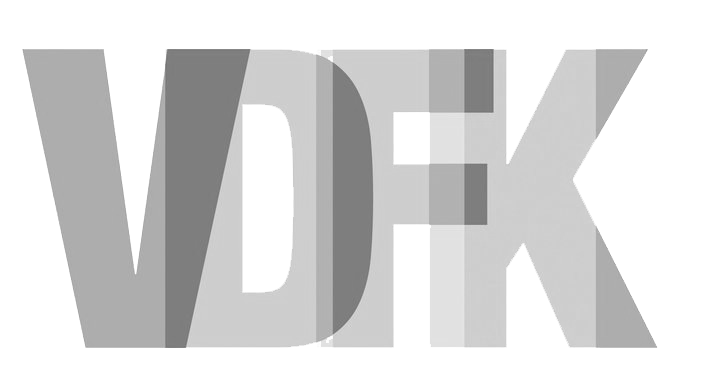Blog #5/22 [UNTITLED]
by Savina Petkova
As a response to the program ‘Libertine’. A video of the debate can be found here.
Or let’s say, [title retracted]
Or [***]
Or any similar rephrasing which would please the quasi-textual escapists
The first thing to be done is to make a case for not naming – for concealing and even anonymising – in order to plant the seed of nominal scepticism. Now we can begin.
“Libertine” was the theme of our evening program, and a debate on “images and their first encounters” was promised. The non-normativity of the title, however, inaugurates a series of what I find to be endearing collective failures in articulating what would be a vindication of the provocative name. As a result, these attempts hang, suspended in the hybrid conversation, to suggest a multiplicity of meanings. What I recognise as strata of illegibility permeating the trio of films programmed leaves me with the impression that their taming was sought after and therefore titled. So what’s in a name?
Firstly, The Stonebreakers by Azul Aizenberg seeks to fill in a representational gap. While the women who took part in the Great Tandil Strike, the longest in Argentina, were omitted from the filmic archive, this short reimagines their central role by performing acts of excavation – media archaeology – and such of substitution. Hundreds of film titles (old, newer, world, Western) mark the credits’ end as the essayistic form has given them a new life; and while the revitalisation of an archive is politically imminent, its recuperative mode of address still draws much more attention to the gap itself, rather than the closing thereof.
Similarly, in discussing Jan Soldat’s Friday Night Stand, the respondents are divided on whether or not the film abides to an aesthetic form, or, on the contrary, betrays it. Is beauty the only possible object of aesthetics? Or maybe the subjectiveness of what beauty is, and all the places where it can be found, in the friction between two erect penises rubbing against one another, as the film’s opening sequence suggests. Later in the discussion, another set of gaps is evoked – the repetitive cut-to-black editing device to which Soldat results to disrupt the otherwise intimate continuity in the scene. Similar to the denied climax, this mode of editing-as-edging invites the audience to make the discontinuation their own. Freedom! Libertè!
Inu-Oh by Masaaki Yuasa is called “bombastic,” which serves the right purpose. An animated, historically-laden musical set during the politically unstable Muromachi period, it rounds up the program in an unexpected way, prompting the question of how much context do we bring in when watching a film. An unimaginable monster turns human, pop-music variations bring people together, and political oppression is the thing that gets to rewrite history at the end, so where does individual freedom lay? The protagonist, blind biwa player Tomona, changes his name three times in the course of the film, to either mark or reject a certain kind of belonging.
[Names are:
pointers, interpretations, omens, promises, curse (?), burden, tradition,…]
After the screening, it almost seems like we’re left to make sense of it all in the aftermath, the contaminating effects of the three films, as well as the title of the program itself. Was naming this bit “Libertine” a gesture of the programming team just throwing the glove? Contextual difficulties arise and Marquis de Sade is nowhere to be found amidst many cultural incongruencies.
In the search for threads of similarity, repetition, and differences, discussions of the films’ shared plasticity resurface. Denis Vetter brings up the changeability of “mutant films” that transform their tone or genre as they unfold. In relation to this, Skadi Loist jokes about the program being frankensteinian, and I find this comparison very apt, as often case naming and structuring as an act involves stitching the pieces together and pulling the switch that jolts life into the newborn hybrid, with the hope that somehow it will work. What about the parallel worlds in which alternative combinations exist, where is their graveyard to be found?
The hierarchies of hybrid events also find a place amidst a talk devoted to non-hierarchical ways of working within a programming collective. In the audience questions, the attempt of interpretation of the three films together is dressed in the rhetoric of labour, it’s a “task” or there is an “input” needed to make sense of the title as some sort of polynomial equation. When Dea Kulumbegashvili poses the question of what does a “real” connection between films even look like, one thinks of divination rather than algebra, as a (film, or program) title can be seen as a carrier of the imprint of its own becoming. Nomen-omen.
Petra Palmer, in relation to the obstacles of interpretation, mentions (meta)historian Hayden White, paraphrasing his words to suggest that maybe film, as history, should be read as literature. The talk also circles back to discuss the interpretative codes inherited from literary studies, as the analysis of a film, a poem, or a novel often follows similar steps, even if they are medium-specific. The close allegiance of film analysis to text has influenced and also stimulated the development of film’s own analytical apparatus, but can untitling offer a potential for liberation? Or is the title rather the last bastion of textual engagement when a piece is completely audiovisual (let’s say, without subtitles or credits)?
What is that, which resists untitling?
I’ve altered the GIF sequence by censoring the titles. The fact that most titles are centrally positioned and occupy the heart of the screen to draw in the audience member’s gaze, as hungry for meaning as ever. It seems, the only one escaping my suppression is (surprise!) the Japanese text. Dewesternise and liberate!
In The Stonebreakers and Inu-Oh, the missing historical sources take centre stage. In order to decide what to do with a missing substance, we attempt to cover it, to recover it, to discover it. But what about a name? To omit the name whatsoever is a choice to dispense with the source, in other words, relinquishing control as a gesture. My own response inhabits the over-textual domain, yet I cannot help but write about the failures of a normative, rational, linear tradition of titling, as it seems so easy to subsume diverse films under fewer but increasingly abstract orders by naming, by genre-naming, cataloguing, building databases, taxonomies, oh… and tags. We shouldn’t rely on the things we feel are most secure, that is the anxious advice of the Anthropocene. After all, the default file-saving setting is *untitled*



